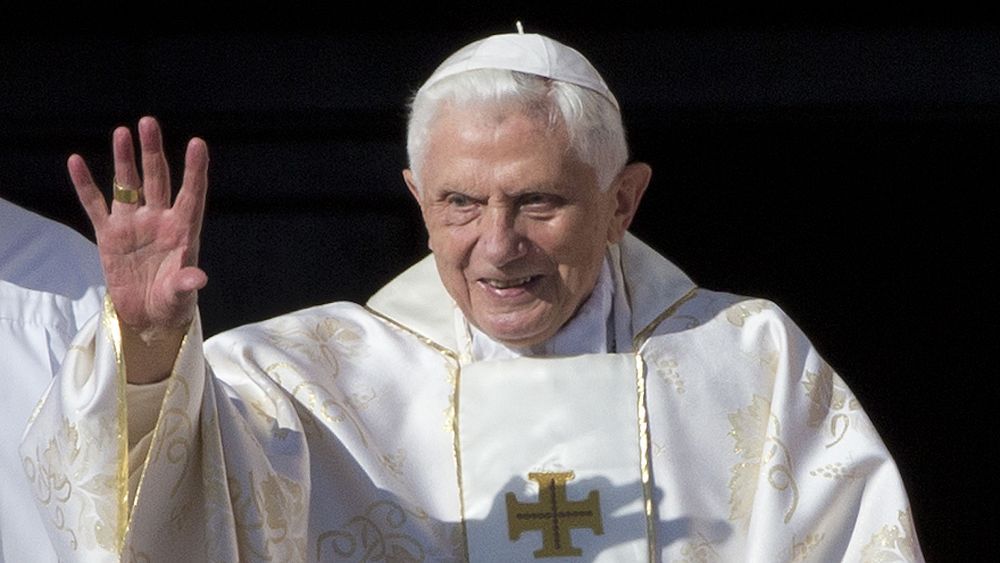
Ex-pope Benedict XVI has asked for forgiveness for any “grievous faults” in his handling of sexual abuse cases within the Catholic Church
But he did not admit to any personal wrongdoing, despite recent criticism of his conduct while serving as archbishop of Munich.
“I have had great responsibilities in the Catholic Church,” the 94-year-old retired pope said on Tuesday.
“All the greater is my pain for the abuses and the errors that occurred in those different places during the time of my mandate.”
A January report accused Benedict of mishandling four sexual abuse allegations in the Munich archdiocese between 1977 and 1982.
The report’s authors accused the pope — then known as Cardinal Joseph Ratzinger — of failing to restrict the accused priests, even after they had been criminally convicted.
The German study had estimated that there were at least 497 abuse victims between 1945 and 2019, and at least 235 suspected perpetrators.
The Vatican on Tuesday released two letters, including one written by Benedict in response to the allegations.
The emeritus pope said that by meeting victims of abuse, he had “seen at first hand the effects of a most grievous fault”.
“I have come to understand that we ourselves are drawn into this grievous fault whenever we neglect it or fail to confront it with the necessary decisiveness and responsibility, as too often happened and continues to happen,” he wrote.
“Once again I can only express to all the victims of sexual abuse my profound shame, my deep sorrow and my heartfelt request for forgiveness.”
The retired Pope’s team had previously corrected an “error” that initially denied that Benedict had attended a meeting to discuss transferring one priest in question
“As an archbishop, Cardinal Ratzinger was not involved in any cover-up of acts of abuse,” the second letter from his advisers read.
Benedict’s lawyers added that there was no evidence that Benedict was aware of the four priests’ criminal backgrounds.
Benedict — who stepped down in 2013 — also thanked his successor Pope Francis for his “support” and “trust” after the German report was published.